http://www.ctrchanginglives.org

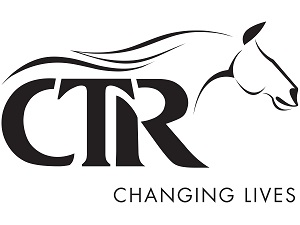
Chesapeake Therapeutic Riding
1136 Priestford Road
STREET, MD 21154
Mailing Address:
1136 Priestford Road
STREET, MD 21154
Phone: 443-528-7793
MAKE AN INQUIRY
View our WEBSITE
EIN: 26-0068227Founded: 2003
View our PHOTO GALLERY
Profile Last Updated December 31, 2025Public Charity

The Guardian Seal of Transparency is awarded annually to recognize an organization's commitment to transparency and accountability by their willingness to make comprehensive data about their programs, horse care practices, and governance available for public scrutiny. The Guardian Seal of Transparency is NOT an endorsement.
Last Updated: November 30, 2025
Chesapeake Therapeutic Riding has not attained the Guardian designation for 2026.
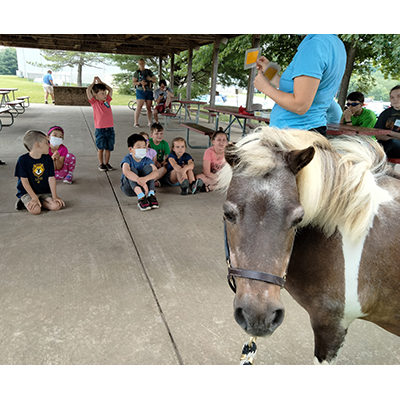
MISSION & PROGRAMS
Mission:Founded in 2003, Chesapeake Therapeutic Riding, Inc. (CTR), is a 501c3 non-profit that makes horses and equine assisted services accessible to children, adults, and veterans who live with disabilities and diagnoses. Our mission is to deliver healing and learning to individuals and groups whose minds, bodies and spirits will benefit from the transformative connection between people and horses. Our vision is to establish CTR as the premier equine-based therapeutic healing and learning center in the Mid-Atlantic Region.
Our organization conducts Equine Assisted Services in accordance with the EQUUS Foundation Guidelines on Qualifications of Organizations Conducting Equine Assisted Services (EAS).
Our organization provides outreach and/or public education programs involving horses.
100% of our total programs and services are equine-related.
Our organization is directly responsible for the care and shelter of equines involved in our programs.
Our organization does not CURRENTLY use satellite, overflow, foster, and/or outreach facilities.
Please describe what steps your organization takes to ensure that:
1) all interactions between your equines and people are mutually beneficial and conducted in accordance with the Guidelines for Human-Equine Interactions stated below;
2) all equines in the care of our organization and/or equines that participate in the organization's program have access to clean drinking water at all times; nutritious food in sufficient quantity, including natural forage such as pasture grass and/or hay; appropriate veterinary, farrier, and dental care; shelter and protection from the weather; sufficient safe space to move around comfortably on a daily basis; and daily opportunity to freely interact and have contact with other equines:
1.) We are dedicated to ensuring that every interaction between our equines and the people we serve is respectful, enriching, and mutually beneficial. Through our adaptive and therapeutic riding, unmounted horsemanship, equine-assisted therapy, team-building exercises, and equine-assisted learning programs, we create purposeful connections grounded in compassion and care.
To uphold the highest standards of welfare and partnership, we implement the following practices:
1. Equine Well-Being as a Priority: Each of our equines receives individualized care, including regular health evaluations, mental and physical enrichment, and rest periods. Their well-being guides all program decisions.
2. Empowered Participation: Our equines are given a voice in their interactions. We respect their signals and allow them to choose whether or not to engage in an activity, fostering a sense of trust and autonomy.
3. Trauma-Informed and Ethical Practices: All interactions are guided by principles of empathy, patience, and positive reinforcement. We follow evidence-based approaches to ensure both physical safety and emotional wellness.
4. Comprehensive Education and Training: Participants—including clients, volunteers, and staff—receive ongoing training in equine behavior, communication, and safety to foster respectful and informed relationships.
5. Continuous Assessment and Feedback: We monitor the impact of interactions on both equines and humans, making adjustments as needed. Feedback from veterinary professionals, therapists, and participants is actively used to refine our practices.
Through these efforts, we aim to cultivate meaningful, healing, and educational experiences that honor the needs and dignity of both our equine partners and the people they serve.
2.) At CTR, the health and comfort of our horses are at the heart of everything we do. We are proud to provide a standard of care that reflects our deep respect and gratitude for the equines who make our mission possible.
Our horses live as naturally as possible, with 24/7 turnout on 12 acres of well-managed pasture. During the warmer months, they graze on carefully maintained grass fields. In the winter, they are provided with high-quality hay to ensure their nutritional needs are met year-round. Automatic waterers, cleaned weekly or more often as needed, ensure constant access to clean, fresh water. Mineral salt blocks are also available in the fields to support overall health.
Safety is a top priority at CTR. Fence lines and pastures are regularly inspected and maintained, with prompt removal of downed trees or other potential hazards. Horses are grouped by gender or size to ensure compatibility and reduce stress within the herd.
Each morning, horses are brought into their stalls to receive individualized nutrition plans that may include balancer, senior feed, soaked feed, and supplements as recommended by our veterinarian. When stabled for any period of time, horses are provided with clean, cool drinking water and hay in slow-feed bags for comfort and digestive health. Stalls are thoroughly cleaned after each use and we use high-quality shavings or straw as needed for bedding.
At the first sign of stress or discomfort, we respond promptly with basic medical care and consult with our veterinarian as necessary. Our horses receive routine dental care, vaccinations, and deworming on a predetermined schedule. Whether barefoot or shod, each horse's hoof care is managed by a top-tier farrier, ensuring their comfort and soundness.
We take immense pride in the care we provide. Our horses are not just part of our programs—they are our partners, teachers, and friends. We would have and be nothing without them. It is our honor and responsibility to be their stewards.
Equine Assisted Services (EAS) Overview:
Overview of our programs involved with providing EAS to individuals with special needs:
CTR offers Adaptive Riding Lessons on our farm for children and adults who live with physical, neurological, psychiatric, and behavioral disabilities and diagnoses. We also offer unmounted services that include groundwork lessons through a program called Discovery Horses for the same population of people.
In 2024, we expanded our Veterans Programming, and provided adaptive riding and unmounted adaptive lessons through our Horses and Heroes Program to 127 veterans who live with disabilities and diagnoses, through our partnership with the Veterans Administration at Perry Point, MD, and Baltimore City, MD.
CTR offers Personal and Professional Development through EAS sessions with our healing herd of horses that focus on these areas-- Team Building; Leadership; Grief and Bereavement; Women's Empowerment; and Healthy Boundaries for Front Line Workers. A licensed Psychologist who contracts with CTR conducts these sessions, and CTR certified staff participates as horse experts. We interact with these participants through our community partners and do not request or require diagnoses. Our most successful of these EAS sessions was a series of workshops that focused on personal and professional development for Front Line Workers.
CTR's Horse-Powered Learning Program is available as well as field trips on and off the farm. This program is an Equine Assisted Learning (EAL) program, designed by our resident educator on staff, and the subject focus for each EAL session is typically Reading/Literacy, Communication Skills, Problem-Solving, Math, and Science. Over the past year, we conducted Horse-Powered Learning Visits to the Harford County Public Libraries with our Shetland Pony, Buttons, who encouraged 397 young people to learn about horses, horse care, and practice their literacy, horse biology, and math skills through a series of fun games and activities.
Equine Assisted Services (EAS) and Providers:
Our organization provides the following Equine Assisted Services (EAS):
Adaptive/Therapeutic Riding
Adaptive/Therapeutic Unmounted Horsemanship
Equine-assisted Learning in Education
Equine-assisted Learning in Personal Development
7: Total number of Equine Assisted Service Providers at Serenity Hill Farm
1 Cathy Schmidt
FACILITY PARTICIPATION:
Serenity Hill Farm
RELATIONSHIP: Employee
SERVICES PROVIDED:
Adaptive/Therapeutic Riding
Adaptive/Therapeutic Unmounted Horsemanship
DEGREES, LICENSES AND/OR CERTIFICATIONS
PATH International Certified Riding Instructor/Mentor and Equine Specialist
2 Gayle Zorbach
FACILITY PARTICIPATION:
Serenity Hill Farm
RELATIONSHIP: Employee
SERVICES PROVIDED:
Equine-assisted Learning in Education
Equine-assisted Learning in Personal Development
DEGREES, LICENSES AND/OR CERTIFICATIONS
Riding Instructor and Equine Specialist, Loyola College – Certification in Early Childhood Development (MASTERS DEGREE IN EDUCATION), MEd University of Maine – Concentration in Motor Development, Bachelor of Science – Towson State College, Physical Education/Psychology, 38 years Harford County Public Schools
3 Meghan Price
FACILITY PARTICIPATION:
Serenity Hill Farm
RELATIONSHIP: Employee
SERVICES PROVIDED:
Adaptive/Therapeutic Riding
Adaptive/Therapeutic Unmounted Horsemanship
DEGREES, LICENSES AND/OR CERTIFICATIONS
Full time program manager and client coordinator. CTRI in training, providing mounted and unmounted adaptive lessons under the supervision of a CTRI at all times.
4 Michelle Perry, Ph.D.
FACILITY PARTICIPATION:
Serenity Hill Farm
RELATIONSHIP: Independent Contractor
SERVICES PROVIDED:
Equine-assisted Learning in Personal Development
DEGREES, LICENSES AND/OR CERTIFICATIONS
Dr. Michelle Perry is a licensed psychologist who teaches participants professional and personal development at CTR, in partnership with our healing herd of horses (through EAS).
5 Philadelphia Robinson
FACILITY PARTICIPATION:
Serenity Hill Farm
RELATIONSHIP: Employee
SERVICES PROVIDED:
Adaptive/Therapeutic Riding
Adaptive/Therapeutic Unmounted Horsemanship
DEGREES, LICENSES AND/OR CERTIFICATIONS
Full time program manager and volunteer coordinator. CTRI in training, providing mounted and unmounted adaptive lessons under the supervision of a CTRI at all times.
6 Seyenna Smith
FACILITY PARTICIPATION:
Serenity Hill Farm
RELATIONSHIP: Employee
SERVICES PROVIDED:
Adaptive/Therapeutic Riding
Adaptive/Therapeutic Unmounted Horsemanship
DEGREES, LICENSES AND/OR CERTIFICATIONS
Part time program assistant. CTRI in training, providing assistance with mounted and unmounted adaptive lessons under the supervision of a CTRI at all times.
7 Virginia Iannone, Ph.D.
FACILITY PARTICIPATION:
Serenity Hill Farm
RELATIONSHIP: Independent Contractor
SERVICES PROVIDED:
Equine-assisted Learning in Personal Development
DEGREES, LICENSES AND/OR CERTIFICATIONS
Licensed Psychologist and Professor of Psychology at Stevenson University, who teaches professional development, personal development, and leadership to participants at CTR, through partnership with our herd in unmounted services (EAS).
Outreach and/or Public Education:
CTR engages in multiple community outreach events each year to engage public interest in the value of horses to our healing and learning. CTR is a Horse Discovery Center as designated by the Maryland Horse Industry Board under the Maryland State Department of Agriculture. Horse Discovery Centers are licensed stables that strive to provide the general public with a safe, friendly, and educational experience, particularly for those individuals who have never or rarely experienced horses personally.
CTR partners every year with the Harford County Public Library to bring Horse-Powered Learning to school aged children at library locations around the county. CTR engages with hundreds of children and families each year through this library partnership, bringing their Shetland pony, Buttons, to visit people and different library branches for two-hour learning sessions about ponies and horses that are designed to make learning hands-on and fun.
CTR participates in a number of annual events in and around the area including but not limited to: the Harford County Veterans Resource Fair, the Harford Leadership Academy, Harford County Trauma Institute Conference and Retired Service Member Volunteer recruiting event at Aberdeen Proving Ground. At these events CTR's friendly staff engages with hundreds of community members, veterans and their families/support people, sharing with them the benefits and healing power of partnering with horses humanely through adaptive riding lessons or unmounted basic horsemanship lessons on the CTR Farm.
CTR introduced a new annual event on the CTR farm in October of 2023: the CTR Fall Festiv-ALL, a fun trick or treating extravaganza in which 223 members of our public community came to experience horses in a safe and humane way, all while celebrating the fun of the Halloween Season with CTR staff and volunteers. In 2024 we were not able to have the Fall Festiv-all due to an unanticipated strangles diagnosis with one of our herd members acquired in September. We anticipate bringing the annual festival back in 2025.
In April of 2024 we had our inaugural fundraiser and horse discovery center event , Hoofin' It 5K and Fun Run, in which 85 members of our community participated.
Through attending these community-outreach events, CTR was able to interact with 892 members of the public in 2024--answering questions about Equine-Assisted Services (mounted and unmounted), Horse-Powered Learning opportunities in the community, and how interacting with horses in humane partnership can be healing.
Research/Medical Use of Equines:
Our organization has never made, and would not ever consider making, equines available for research studies or medical training that involves invasive procedures and/or that which may cause pain or suffering to the equine.
Religious Affiliation:
Our organization does not promote religious education, religious purposes, or a specific religious faith or use donations for religious education or religious purposes; require participants to be of a certain faith; require participation in religious, instruction, activities or services; or require participation in prayer, worship, religious instruction or other religious activities as a condition of receiving social or secular services offered.
Auction Donation:
Our organization has never allowed, or would not consider allowing, an equine to be sold, transferred, released, or otherwise placed into possession of any person or organization that would cause or allow the equine to be sold at auction for slaughter.
POLICIES: INTAKE, ASSESSMENT & TRAINING
Prior to a horse being accepted and/or arriving at the facility, the organization has the following policies in place:The owner of a potential equine is interviewed over the phone or in person prior to seeing the equine
The equine is evaluated at its place of residence
The owner completes an application/contract which constitutes the agreement between the owner and our organization when the equine is acquired from the equine's owner other than by seizure or by abandonment
The owner is financially responsible for the shipping of the equine to and from the organization
If health records are not available or are out-of-date, our veterinarian will administer appropriate vaccinations
A health certificate signed by a veterinarian and dated no more than seven days prior to arrival is provided to our organization either prior to or upon arrival of the equine attesting to the health status of the equine
Trial Period: Check all that apply:
Equines are on trial up to 60 days
Equines are on trial for 60 or more days
The trial period may be reduced based on the equine's progress
During the trial period, the owner/donor is financially responsible for the care of the equine, including board, feed, shoeing and any necessary veterinary care
The trial period may be terminated by either the organization or the owner for any reason
Equines are on trial for up to 30 days
During the trial period, the organization accepts total financial responsibility for the care of the equine, including board, feed, shoeing and any necessary veterinary care
During the trial period, the organization accepts financial responsibility for the care of the equine, including board, feed, shoeing and any necessary veterinary care, up to a fixed amount agreed upon by the organization and the owner
Upon intake, the organization has the following quarantine policy in place:
The equine is confined to a designated and separate area for isolation and quarantine at the facility for a prescribed period of time
The equine is confined to a designated and separate area for isolation and quarantine off-site for a prescribed period of time
The equine is not quarantined
The typical length of quarantine is: Up to 10 days
Following arrival of the equine at the facility, the following is performed:
Physical examination to include temperature, pulse and respiration by a veterinarian upon arrival
Physical examination to include temperature, pulse and respiration by a trained staff member upon arrival
Photographs are taken of each equine upon arrival at the facility and kept with the equine's health records
Physical examination by a farrier
Physical examination by a dentist
A Henneke Body Conditioning Score or other body conditioning score is assigned by a veterinarian upon arrival
A Henneke Body Conditioning Score or other body conditioning score is assigned by a trained staff member upon arrival
The equine is microchipped if the equine has not been microchipped
Horses are assessed for following skills and behaviors:
Retrieval from a pasture/paddock
Leading with a halter and lead rope
Temperament, disposition and attitude, such as rated from very calm to very high spirited
Saddling
Bridling
Lunging
Loading onto and unloading off a trailer
Mounting and dismounting
Riding at the walk
Riding at the trot
Riding by a beginner and/or unbalanced rider
Tolerance to unusual objects and loud noises
Known vices, i.e., cribbing, biting, kicking, weaving, stall walking, etc
Grooming
Bathing
Tolerance to multiple handlers at the same time
Riding at the canter
Jumping
Driving (Pulling a carriage)
Clipping
Our organization has the following policies and procedures in place pertaining to the ongoing assessment of horses in its care:
The Henneke Body Condition score or other body conditioning score is updated at least annually by a trained staff member
Photographs are taken of each equine annually and kept with the equine's health records
Equines at our facility may be treated by an equine massage therapist
Physical examination by a veterinarian at least annually
The Henneke Body Condition score or other body conditioning score is updated at least annually by the veterinarian
Vaccinations are administered at least annually
Photographs are taken of each equine monthly and kept with the equine's health records
Equines at our facility may be treated by an equine chiropractor
Equines at our facility may be treated by an equine acupuncturist
Equines at our facility may be treated by an equine nutritionist
Our organization has the following policies and procedures in place pertaining to the weight-carrying or workload capabilities of horses/equines that are ridden in our care:
Our organization evaluates the weight-carrying and workload limitations for each equine that is ridden at least annually
Our organization maintains a written record of the weight-carrying and workload limitations for each equine that is ridden
Our organization does not evaluate the weight-carrying and workload limitations for each equine that is ridden
No equines are ridden; not applicable
The following variables are considered in determining the weight-carrying and workload limitations for each equine that is ridden:
Equine age, weight, breed, body condition, fitness, balance, health and soundness
Participant weight, height, body proportions, balance, fitness and riding skills as well as behavioral issues and safety concerns
Weight and proper fit of the saddle and other equipment
Duration and frequency of working sessions, as the frequency with which an equine is subjected to maximum weight carrying and/or workload
Nature and pace of work, repetitive or varied, radius of turns, degree of incline and regularity of footing when equine is subject to maximum weight-carrying capacity
Temperature and/or weather conditions
Seasonal impact on the equines' workload and weight-carrying capabilities and limitations
Equine conformation to include the top line, length of back, strength and width of loin, bone density (measured by the circumference of the cannon bone just below the knee)
Size, shape, condition and angle of the hooves
Terrain and footing in the working environment
Our organization does not evaluate the weight-carrying and workload limitations for each equine that is ridden
No equines are ridden; not applicable
Horses provided formal training (groundwork or riding): Weekly
POLICIES: BREEDING
The organization has the following policies related to breeding and stallions:Our organization does not conduct breeding of equines owned or under the care of our organization.
The main facility where our organization conducts its programs does NOT breed equines.
One or more of the facilities where our organization conducts its programs, including foster/temporary care facilities, breeds equines
One or more of the facilities where our organization conducts its programs, including foster/temporary care facilities, are permitted to house stallions
POLICIES: EUTHANASIA
The organization has the following policies related to euthanasia:Our organization will never have an equine euthanized for space
Our organization will have an equine euthanized upon the recommendation of the veterinarian if the equine is a threat to itself, other equines, or people
Our organization will have an equine euthanized upon the recommendation of the veterinarian after all reasonable treatment options have been explored
Euthanasia is done on site when possible to decrease trauma from transport
Disposal of the carcass is handled within 24 hours
Our organization will never have an equine euthanized under any circumstances
Euthanasia is done at the veterinarian's facility
The following are authorized to administer the procedure for your organization in accordance with state laws:
Veterinarian
A certified euthanasia technician
Senior staff with appropriate training
Employee of animal control shelter or humane society with appropriate training
Veterinary student under the supervision of a licensed veterinarian
Not applicable. Our organization prohibits euthanasia under any circumstances
POLICIES: RE-HOMING
View Re-homing AgreementOur organization has the following re-homing (adoption/purchase) policies and procedures in place:
All potential adopters/purchasers complete a written contract which constitutes the agreement between our organization and the new owner
Our organization does NOT re-home an equine to first time equine owners
Our organization will only re-home an equine to a location where another equine resides
Potential adopters/purchasers must visit our organization and be observed with the equine on site
The distance of a potential adopter/purchaser's home from our facility is a consideration for when re-homing an equine
Our organization conducts a site visit of the adopter/purchaser's facility before the transfer of the equine to the adopter/purchaser's facility
Potential adopters/purchasers are encouraged to do a short-term, on-site foster with the equine
Adopters/purchasers are NOT required to provide updates
Our organization has the following policies and procedures related to horses that need to be retired, are no longer able to contribute to the mission of the organization, and/or are no longer manageable:
Equines may remain at our organization for their lifetimes
Equines may be found suitable homes by our organization
Equines may be returned to their owners
In the case an equine is unmanageable and demonstrates repeated dangerous behaviors, the equine may be euthanized upon the recommendation of the veterinarian
In the case an equine is unsound and/or unhealthy and cannot be treated to relieve suffering, the equine may be euthanized upon the recommendation of the veterinarian
The organization will accept financial responsibility for equines in the current care of the organization that need to be retired or are no longer able to contribute to the mission of the organization if all alternatives have been explored to find the equine an appropriate placement and space is not available for the equine to remain at the organization.
Equines may be sent to auction
If a suitable home cannot be located within 12 months, the equine may be euthanized
The uploaded Re-homing agreement includes the following re-homing (adoption/purchase) statements:
The agreement states that the re-homed equine CANNOT be sold, adopted, transferred, auctioned, released, given away, or otherwise placed into the possession of another individual or organization under any circumstances and must be returned to our organization should the adopter decide that he/she is no longer able, or no longer wishes, to care for the equine.
The agreement reflects that any individual or organization in possession of the equine as of the date of the agreement and any time thereafter is bound to not sell the equine at auction for slaughter or allow the equine to be sold, transferred, released, or otherwise placed into possession of any person or organization that will cause or allow the equine to be sold at auction for slaughter.
The agreement states that if there is any breach of contract the equine must be returned to our organization
The agreement states that should the adopter decide to re-home the equine, the adopter must grant the organization first right of refusal prior to the equine being placed into the possession of any individual or organization intending to take possession of the equine for any reason.
The agreement states that should the adopter decide to re-home the equine, our organization must be notified of the name, address, and telephone number of any individual or organization intending to take possession of the equine for any reason prior to the equine being placed into the possession of such individual or organization.
The agreement states that should the adopter decide to re-home the equine, our organization must grant approval of any individual or organization intending to take possession of the equine for any reason prior to the equine being placed into the possession of such individual or organization, including being provided written notification of the name, address, and telephone number of any individual or organization intending to take possession of the equine for any reason.
The agreement states that the terms of our organization's agreement will be binding on any future individual or organization taking and/or in possession of the equine for any reason.
The agreement states that re-homed equines cannot be bred
The agreement states that our organization reserves the right to make unannounced visits
The agreement states that our organization reserves the right to make scheduled visits
The agreement states that adopters/purchasers can return an equine to our organization free of charge
The agreement states that adopters/purchasers can return an equine to our organization for a fee
The agreement states that adopters/purchasers are required to provide updates (photos, vet records) for one year
The agreement states that adopters/purchasers are required to provide updates (photos, vet records) for two years
Our organization microchips all equines that are not already microchipped before the adoption and/or transfer of the equine if the organization has the authority to microchip the equine.
The agreement includes the microchip number of the equine.
The agreement states that adopters/purchasers are required to provide updates (photos, vet records) for as long as the adopter/purchaser is responsible for the care of the equine
None of the statements are included.
The organization does not re-home equines under any circumstances; our organization retains custody of our equines and ensures care of the equines for their lifetimes.
Our organization does not have the authority to transfer ownership and/or does not own any of the equines involved with our programs.
Our organization requires references from the following:
Veterinarian
Farrier
Personal/Other
Not applicable or no references required.
Transfer of ownership occurs: Immediately (at the time of adoption/purchase) or less than one year
The average equine re-homing (adoption/purchase) fee received by your organization:
None received
Additional information about our rehoming policies and practices:
CTR homes an equine with the reasonable expectation that we can and will provide that animal a home for life on our farm. In rare circumstances, we may have to rehome an equine, and adopters must sign and follow our rehoming agreement.
EQUINE CARE & SHELTER/FACILITY INFORMATION
Our organization does not CURRENTLY use satellite, overflow, foster, and/or outreach facilities.Total facilities at which our organization cares for and shelters horses used in our programs: 1
Serenity Hill Farm
1136 Priestford Road Street MD 21154
Currently operational
Total number of horses/equines currently involved with your programs, under your care, and/or owned by your organization at this facility: 11
Total number of horses at this facility NOT INCLUDING those counted above: 0
Maximum capacity of horses at this facility: 12
Does your organization own, lease or use a part of this facility? Own
Provide the contact information for the individual or organization responsible for investigating abuse in the county where the facility is located, including mailing address, email address, and phone information.
Harford County Animal Control 45 S. Main Street Bel Air, Maryland 21014 410-638- 3505
Does your organization conduct Equine Assisted Services (EAS) at this facility in accordance with the EQUUS Foundation Guidelines on Qualifications of Organizations Conducting Equine Assisted Services (EAS)? Yes
Total number of Equine Assisted Service Providers AT THIS FACILITY, including instructors, specialists, therapists, counselors, coaches and/or facilitators (full-time, part-time, volunteer, independent contractors, and/or providers accompanying clients) that conduct Equine Assisted Services (EAS) in accordance with the EQUUS Foundation Guidelines on Qualifications of Organizations Conducting Equine Assisted Services (EAS) AT THIS FACILITY: 7
Equine Assisted Service Providers Assigned to this Facility: (see Equine Assisted Service Provider Section below for details)
1. Cathy Schmidt
2. Gayle Zorbach
3. Meghan Price
4. Michelle Perry, Ph.D.
5. Philadelphia Robinson
6. Seyenna Smith
7. Virginia Iannone, Ph.D.
We have a member of staff living on site to monitor equines overnight.
Veterinarian Information: Serenity Hill Farm (*Main) Currently operational
Veterinarian: Dr. Jamie Peddy, VMD
Clinic Name: Hess Equine Veterinary Services, LLC
21279 Barrens Road South
Stewartstown PA 17363
Phone: 717-993-5728
Grounds: Serenity Hill Farm (*Main) Currently operational
Total acreage dedicated specifically to the horses: 20
Our organization has use of the following at this facility:
Structures/Barns: 1 Run-in sheds: 4
Pastures: 8 Paddocks/Pens/Turnout Areas: 9
Uncovered Outdoor Rings: 1 Covered Outdoor Rings: 0 Indoor Rings: 1
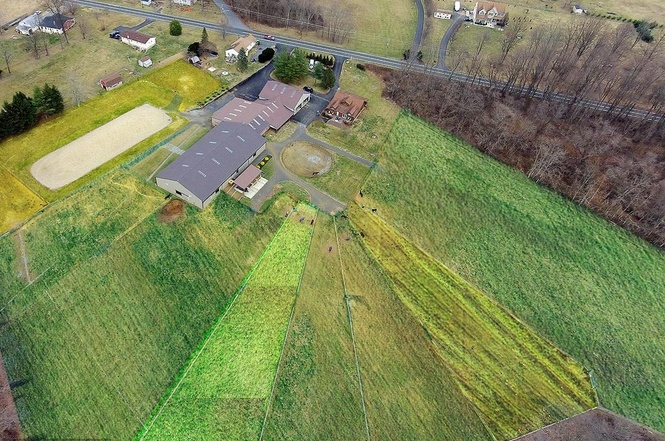
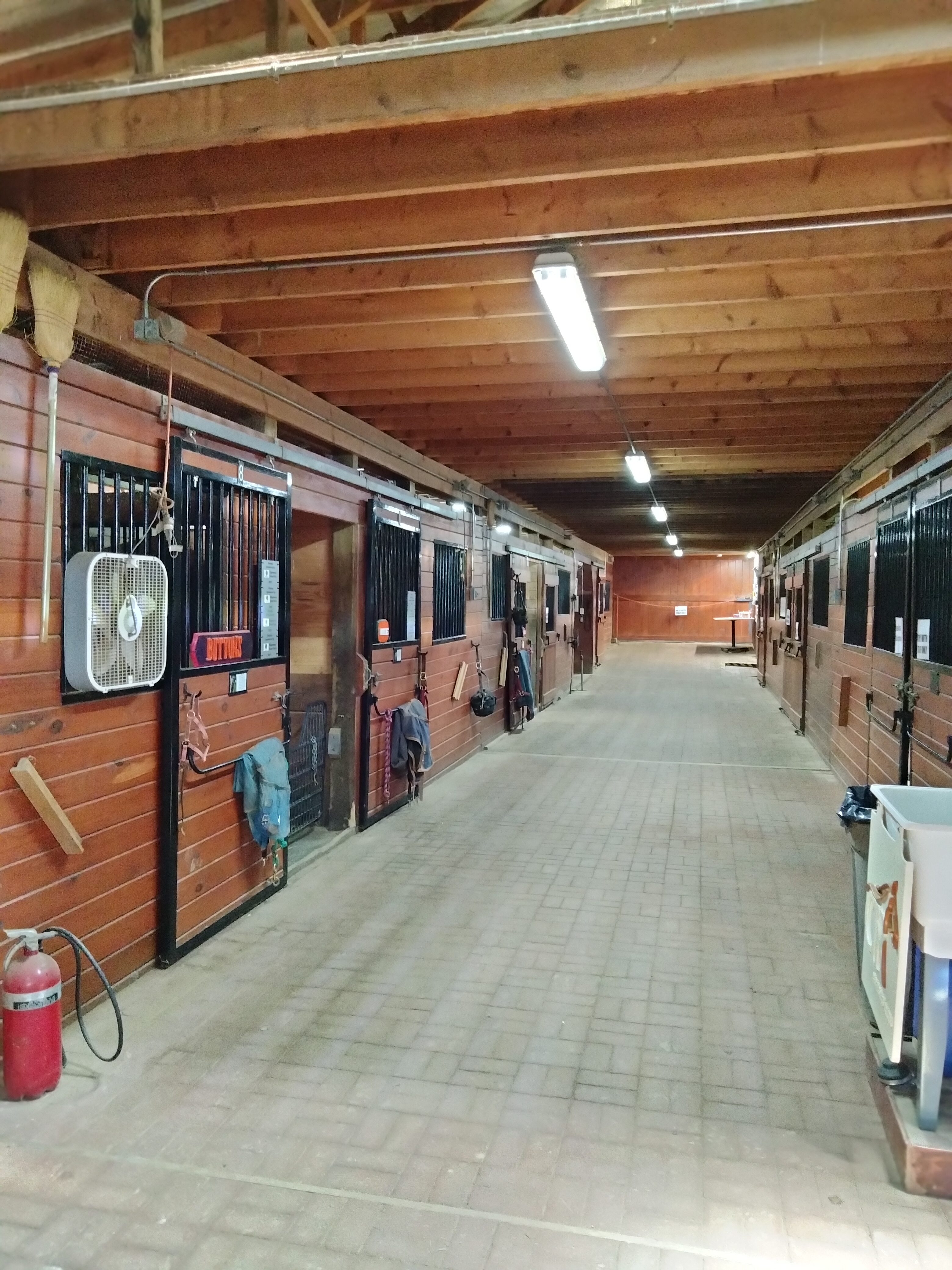

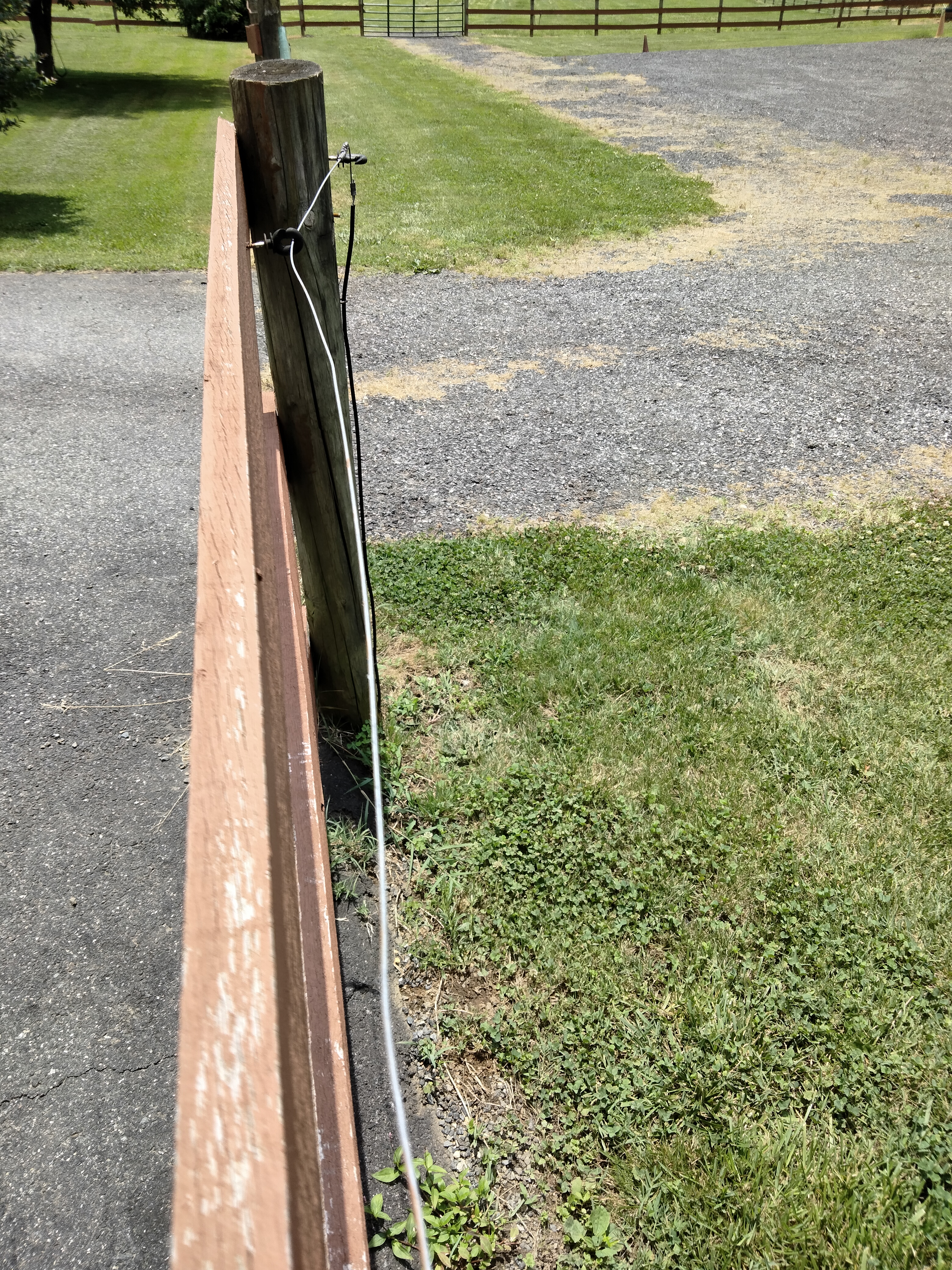
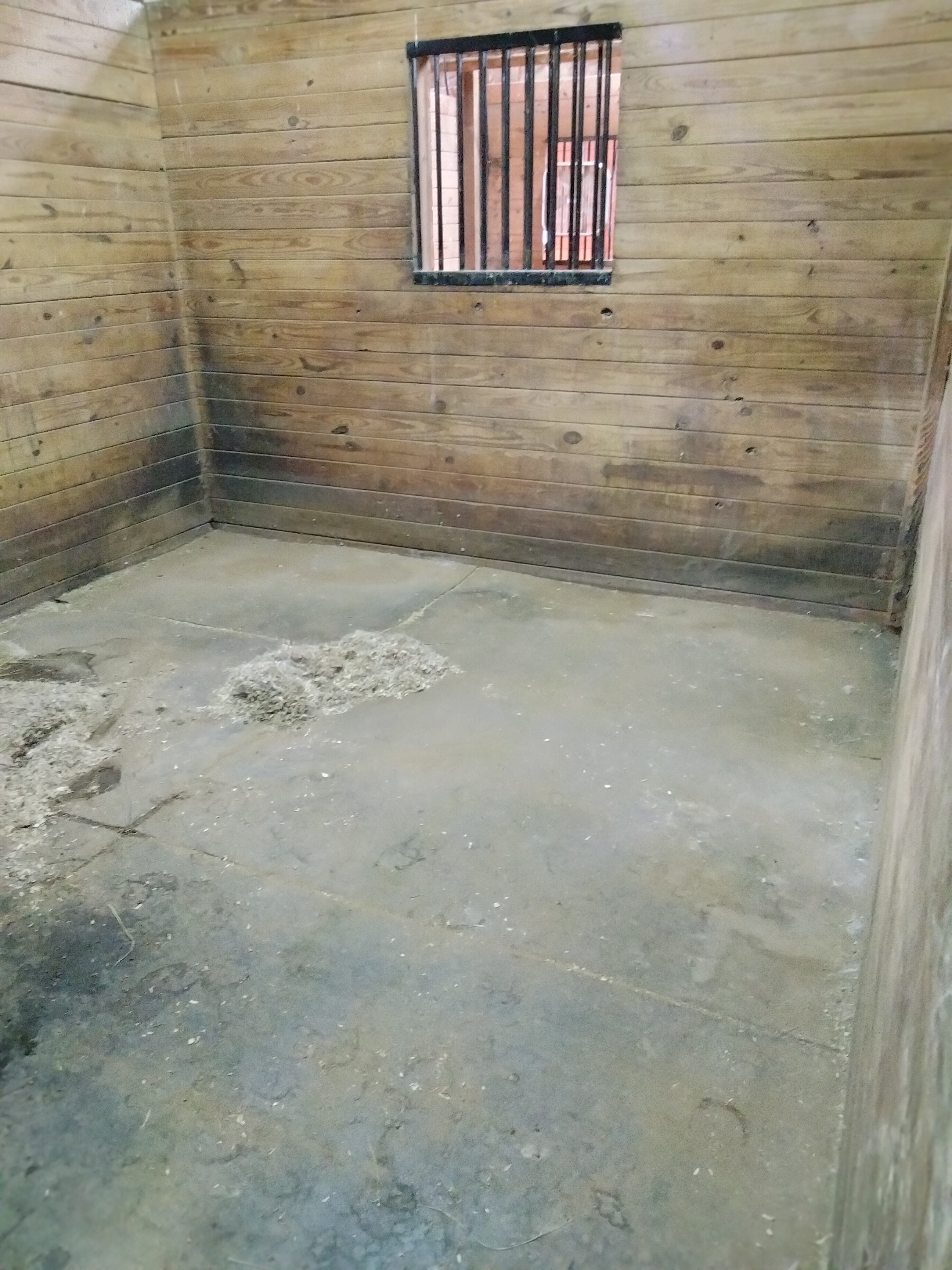
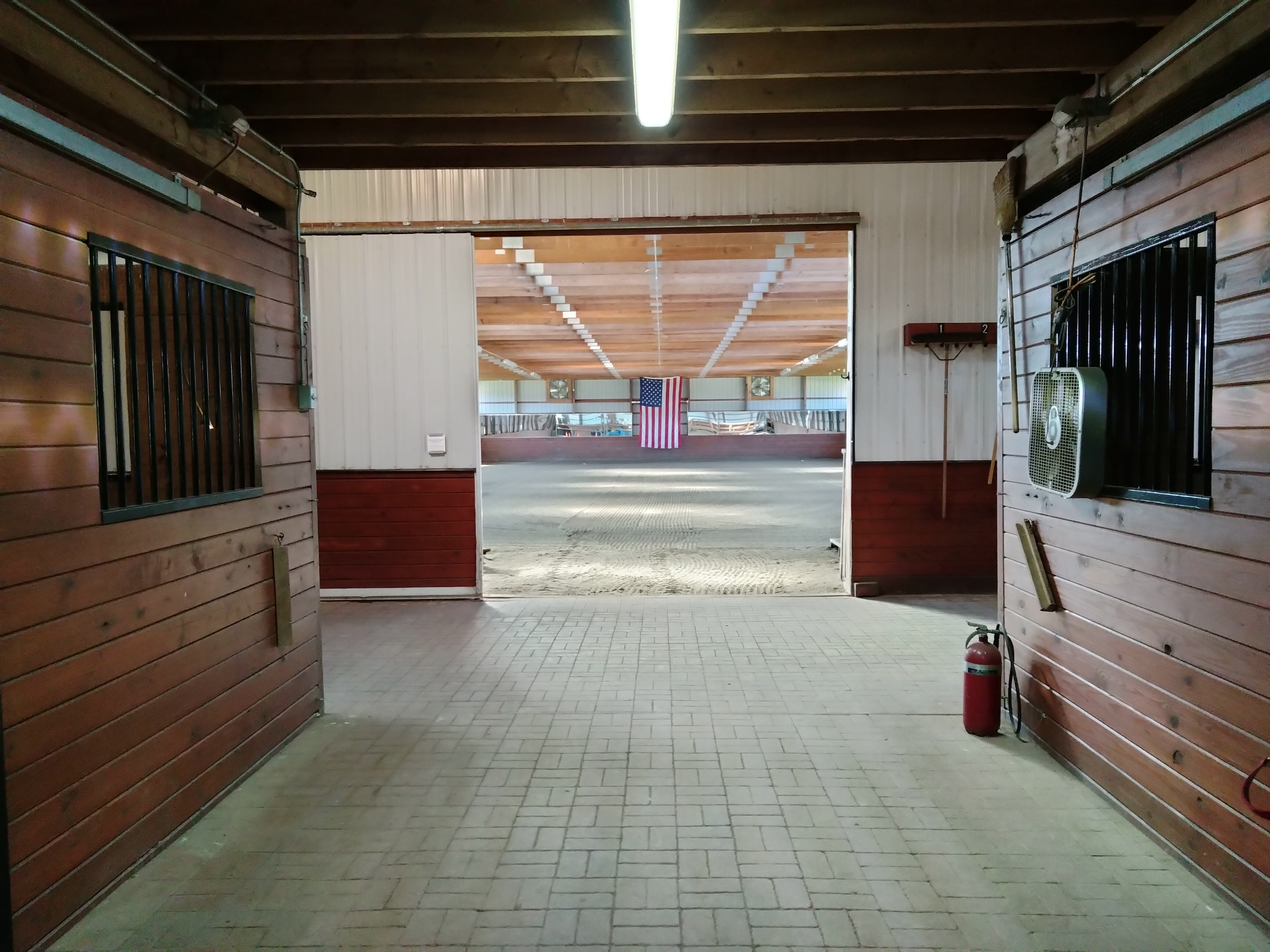
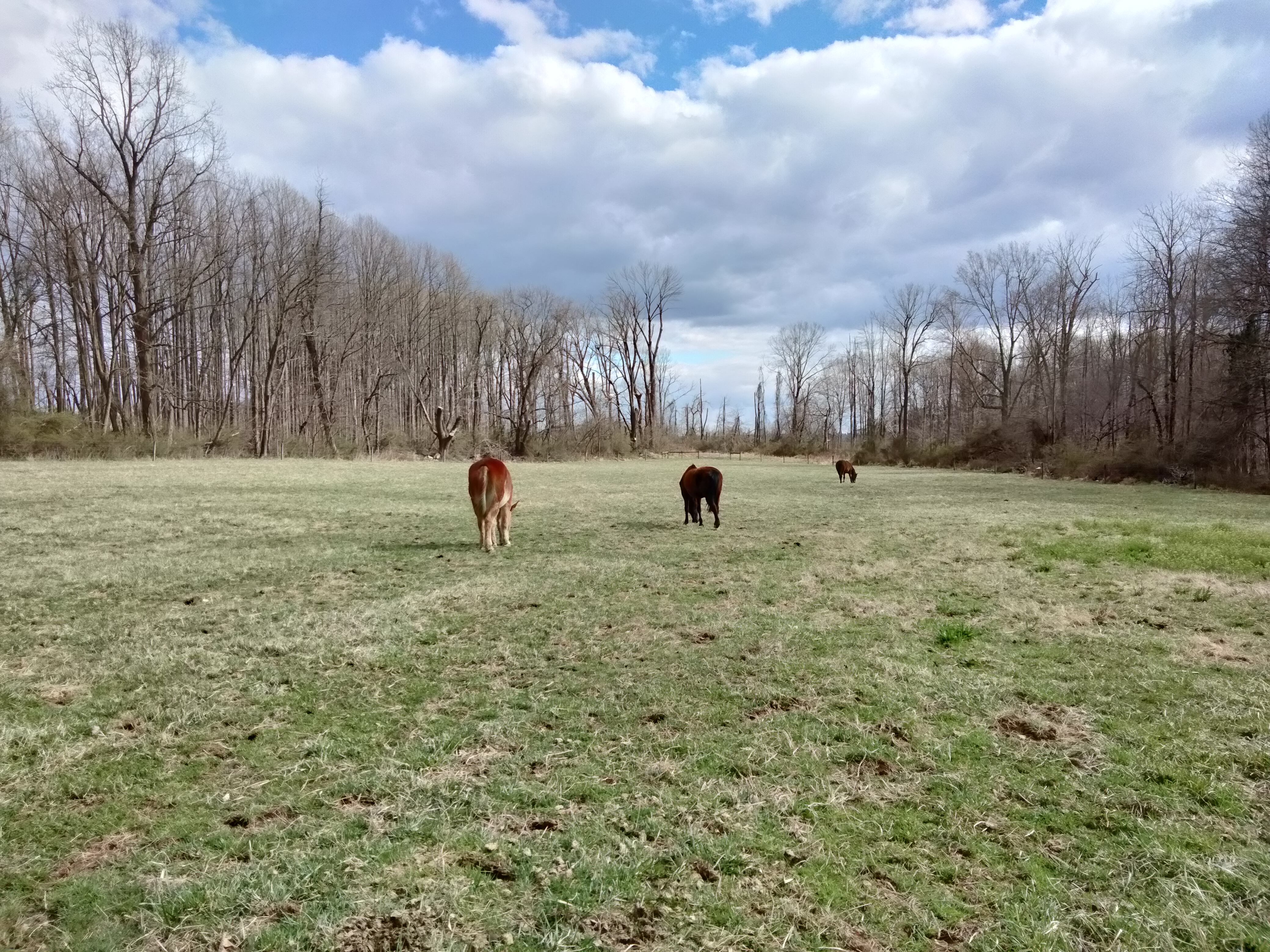
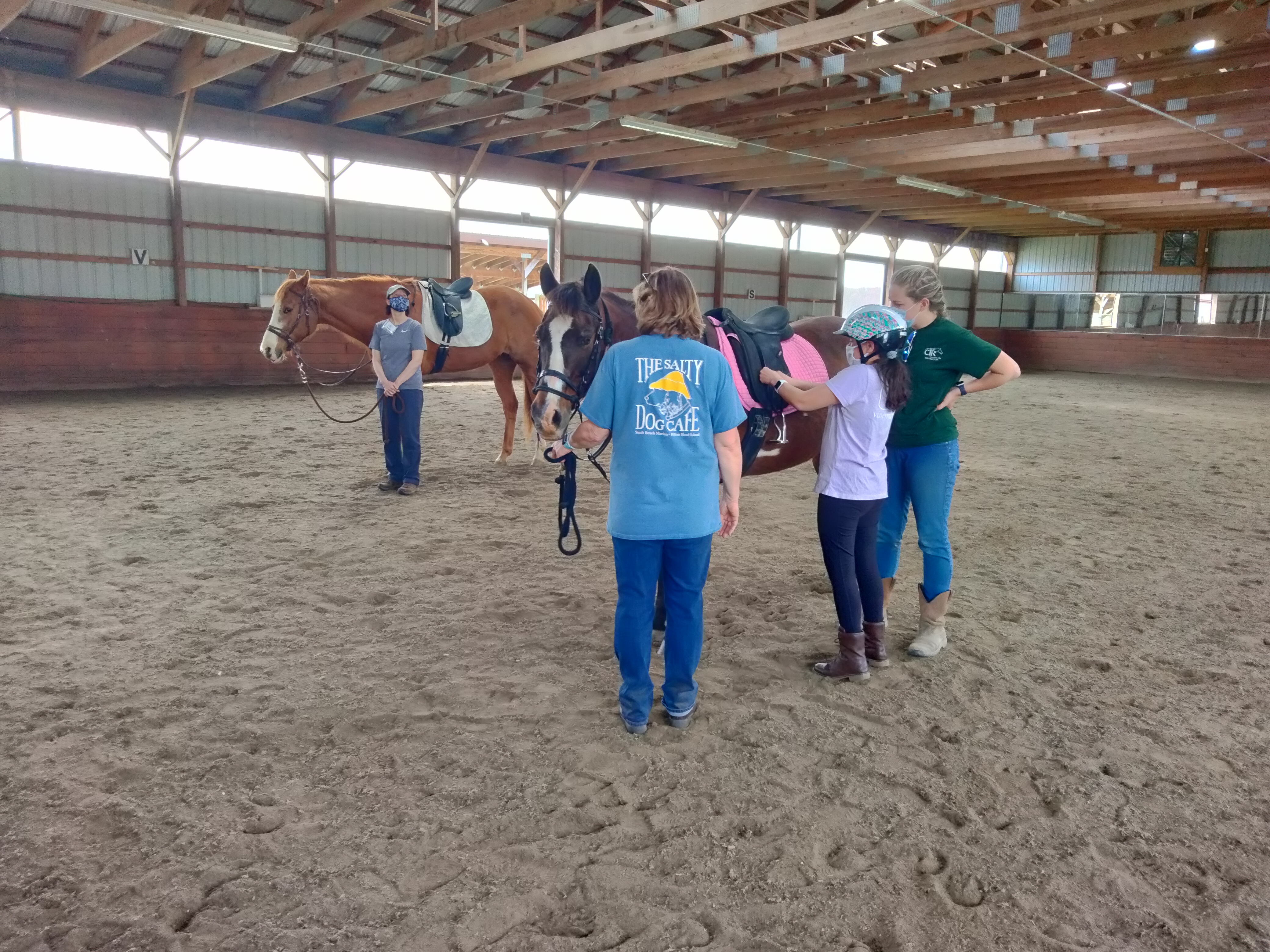
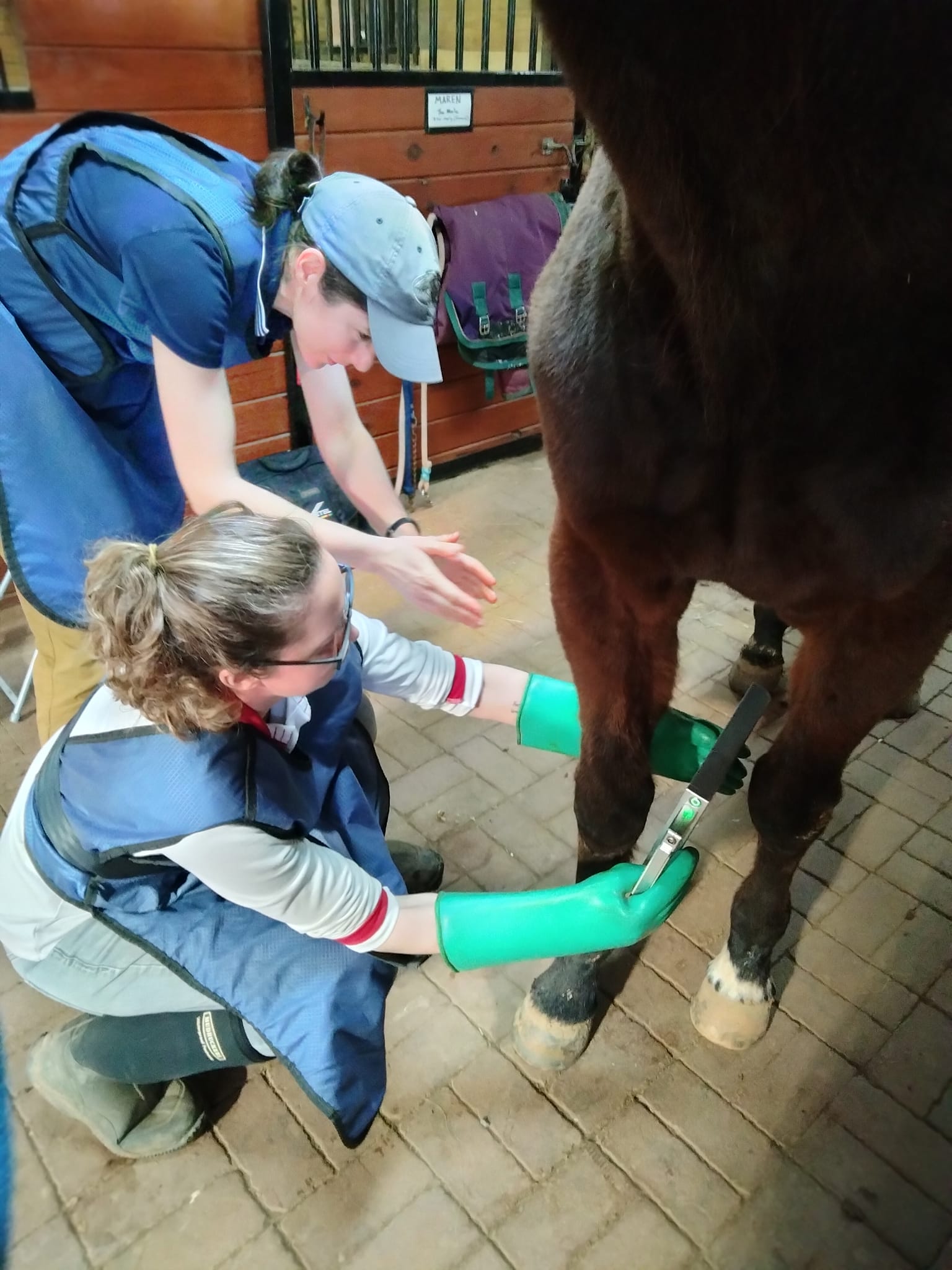
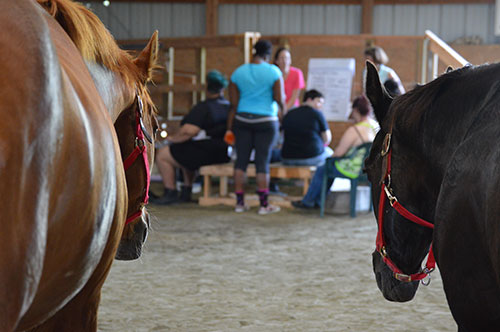
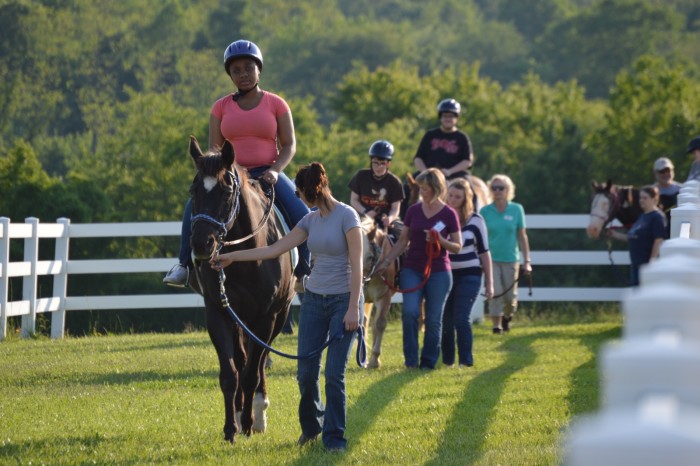
Are the organization's rules, restrictions and warnings (signage) conspicuously posted in easily accessible locations? Yes
Are the organization's emergency contacts, including veterinarian contact information, conspicuously posted in easily accessible locations? Yes
Are human and equine first aid kits easily accessible? Yes
Regarding all shelters where horses are housed including run-in sheds:
Do horses have assigned stalls in the barn/structure(s) or exclusively assigned shelter locations where they are separated from other horses with a barrier? Yes
How many hours per day, on average, are horses stalled or restricted to these sheltered exclusive shelter locations? 0-3;
How often are the stalls/shelters cleaned, i.e., kept in good repair and free of standing water, accumulated waste, sharp objects and debris? 6-7 Days a Week
Do all stalls/shelters allow horses to lie down, stand up and turn around and provide protection from inclement weather (wind, sleet, rain, snow and extreme temperatures)? Yes
Are stalls/shelters kept in good repair, with adequate ceiling height, and free of standing water, accumulated waste, sharp objects and debris? Yes
Are floors constructed and maintained for both good drainage and traction? Yes
Is there a ventilation and circulation system in place to allow free flow of air to control temperature, and humidity, and to prevent air stagnation? Yes
Is wiring inaccessible to horses and maintained for safety in all areas of facility? Yes
Are fire prevention/protection measures (fire alarms, extinguishers and sprinkler systems) maintained and in good working order? Yes
Is there adequate lighting to ensure safety in all areas of facility? Yes
How many hours per day, on average, are horses turned out:
Equines are out 24/7 except they are brought in to feed
Equines are out 24/7 except they are brought in if there is inclement weather
Equines are out 24/7 except when they are being trained
Equines are out 24/7 except when they are used for the conduct of the organization's programs
The following describes the pastures at this facility:
This facility has a written plan in place for pasture management, which includes guidelines for seeding, fertilizing, irrigation, mowing, dragging, harrowing, manure removal, removal of debris, the control of poisonous plants, and a schedule for cleaning
A dedicated staff person(s) is responsible for pasture management
All pastures are fenced to prevent escape or injury
Electric fencing is used; electric wires or tape fence are visibly marked
Fencing checks, such as broken or missing planks, loose fence posts, exposed or loose nails, detached wires, etc., are done regularly
Pastures are rotated
Pastures have natural protection for equines (i.e., trees)
Pastures have man-made protection for equines (i.e., shelters)
This facility does not have pastures where equines can graze on pasture grass
Barbed wire is used for fencing
The following describes the turnout areas other than pastures at this facility:
This facility has a written plan in place for the maintenance of turnout areas, which includes a schedule for cleaning, manure removal, and dragging
A dedicated staff person(s) is responsible for the maintenance of turnout areas
All turnout areas are fenced to prevent escape or injury
Electric fencing is used; electric wires or tape fence are visibly marked
Turnout areas have man-made protection for equines (i.e., shelters)
Fencing checks, such as broken or missing planks, loose fence posts, exposed or loose nails, detached wires, etc., are done regularly
This facility does not have turnout areas
Barbed wire is used for fencing
The following policies and procedures are in place at the facility to restrict public access and to keep horses safe:
The property owner, staff member or caretaker lives on the premises and ensures that public access is restricted and is responsible for the security of the facility and equines
There is a mechanism in place to monitor equines overnight
By Appointment Only signs are posted.
No Trespassing signs are posted
Visitors are only permitted at specific times
Visitors are only permitted in specific areas
The property is fitted with motion lights
The perimeter of the property is fully fenced
A security guard is present at night
Hold Harmless signs are posted
Authorized Personnel Only signs are posted
Entrance gates are locked at night
The property is fitted with a security system monitored by police or a professional service
The property is fitted with a security system that is monitored internally by staff (or the property owner)
Equine Care/Emergency Preparedness: Serenity Hill Farm (*Main) 2026 and 2025 This section is required.
Horse Health Care/Barn Management Records: What system is used to collect and store health/horse care records?
Notebook or equivalent (technology not utilized)
Onsite computer with onsite backup storage system
Onsite computer with cloud-based backup storage system
The organization utilizes its own system to maintain records
The following items are consistent with our feed management plan and practices:
Equines are provided with individualized feeding plans, including supplements, according to the equine's age, breed/type, condition, size, work level and any health issues, consisting of nutritious food provided in sufficient quantity and access to adequate natural forage, or be fed daily, or as recommended by the organization's veterinarian
Feed plans are determined in consultation with a veterinarian
Supplement plans are determined in consultation with a veterinarian
Equines are fed grain in individual stalls
Staff and/or volunteers are trained in proper feed measurements and protocols and observed periodically to ensure they are feeding correctly
The feed chart is centrally located and updated as needed
The area(s) where hay, feed, grain, and supplements are stored are kept clean, free of debris and chemicals, and protected from weather and other animals in rodent-proof and mold-proof containers and grain bins
Feed, supplements and hay types are clearly labeled
Water sources, i.e., buckets, troughs, automatic waterers, etc. are kept clean, free of contaminants, debris and chemicals, protected from weather and other animals, and be positioned or affixed to minimize spillage.
Medications are kept in a secure area
Equines are fed grain in groups
Is clean, potable water available at all times for all equines? Yes
Hoof Care: How often is hoof care provided for each equine? Every 4-8 weeks and when an issue arises
Dental Care: How often is dental care provided for each equine? Annually and when an issue arises
Horse checks: How often are equines visually and physically checked by personnel at the facility? Every day or 6 days a week
Our organization has the following parasite and fly/insect control protocols in place, including remedies used to control flies and insects:
Our organization follows the parasite control guidelines of our veterinarian, including fecal testing and de-worming
Fly/Insect Control Remedies:
Fly Spray Repellent
Fly Masks
Fans
The following represent the biosecurity practices in place at facility:
Our organization follows the biosecurity guidelines of our veterinarian
Sick, affected and/or quarantined equines do not have contact with other equines or other animals
The organization has a written biosecurity plan
Staff are trained in best practices related to biosecurity
Volunteers are trained in best practices related to biosecurity
A specific individual is trained and assigned to care for sick, affected and/or quarantined equines
Sick, affected and/or quarantined equines are cared for last if the caretaker must also care for healthy equines
Restricted access signs are posted at primary points of access to sick, affected and/or quarantined equines
Hand sanitizers are available at all primary points of access to sick, affected and/or quarantined equines
Footbaths are available at all primary points of access to sick, affected and/or quarantined equines
Manure and bedding from sick, affected and/or quarantined equines is removed from the facility - not put in open air piles, and not spread on pastures
Quarantine areas, such as stalls, aisle ways, paddocks, and common areas, are cleaned (and needed, disinfected) after conclusion of the quarantine.
Trailers/vans used by sick, affected and/or quarantined equines are cleaned and disinfected after each use and cleaning takes place away from where equines are sheltered
Equipment used by sick, affected and/or quarantined equines is not shared
Equipment used by sick, affected and/or quarantined equines is cleaned of organic debris and disinfected after each use
Latex gloves, or equivalent gloves, are worn when working with sick, affected and/or quarantined equines
Equines are not quarantined on arrival.
The following represent the manure removal practices in place at facility:
Manure is piled in an area where equines are not located
Manure piles are composted or spread on pastures
Our organization adheres to the manure management guidelines set by the state, local authorities, and/or our organization's veterinarian
Manure is stored in dumpster(s)
Manure piles are covered
Manure is hauled, sold or given away
The following steps are taken to help staff and volunteers readily identify each horse on the property:
Equines are assigned the same exclusive stall/shelter location each day
Name plates are located on the stall/shelter location
Photos are located on the stall/shelter location
Equine photos and profiles are available on the website
Staff and volunteers are provided with an information packet with equine profiles, including photos and detailed descriptions
Staff/volunteers are provided training on conformation, markings, colors, and breeds
Team leaders work with new staff/volunteers until they are able to identify the equines
Equines wear halters with nametags
A notebook or binder with photos and information on each equine is easily accessible
A map/diagram is posted showing the location of each equine with equine names and photos
Our organization has the following policies and procedures in place pertaining to tack, apparel and equipment:
All equines have specifically assigned apparel, equipment and tack (saddles/bridles if ridden) that is not shared
Saddle pads are shared
Blankets are shared
Blankets, sheets and turn out apparel are fitted and utilized for each equine appropriate to the equine's needs and the weather conditions
Blankets, sheets and turn out apparel are cleaned regularly as needed
Riding Tack is cleaned only when needed
Riding Tack is inspected for overall working condition before each use by trained personnel
Riding Tack is assessed for fit before each use by trained personnel
Riding Tack is assessed for fit by trained personnel when an equine's body condition changes
Riding Tack is assessed for fit by trained personnel when an equine's disposition changes
This facility enlists the services of a professional saddle fitter at least once a year
Assigned riding tack is clearly labeled
Riding Tack is stored in a climate-controlled location
Helmets are shared
Helmets are cleaned/disinfected after each use
Helmets are replaced after a fall
Helmets are replaced at least every five years.
Saddles are shared
Bridles are shared
Bits are shared
Sheets are shared
Turnout apparel is shared
Halters are shared
Riding Tack is always cleaned after each use
Riding Tack is always cleaned at least weekly
No equines are ridden; saddles, bridles, etc. not applicable.
Emergency Preparedness: Serenity Hill Farm: *Main This section is required.
The following plans, policies, and procedures are in place at the facility to handle emergencies and address weather related issues, fire safety procedures, and/or any additional hazardous scenarios the facility could potentially experience:
Emergency procedures are posted prominently
The facility owns or has access to a generator
The facility maintains at least two weeks of hay, feed, shavings and medications
The facility collects and maintains medical information from staff, volunteers, and clients
The facility maintains appropriate liability and/or workers' compensation insurance
The organization has a written emergency preparedness/safety plan (EPP)
Local fire department and/or the state's emergency planning department procedures
Medical emergencies for clients, staff, and volunteers
Medical emergencies for equines
Evacuation plans
Fire
Natural Disasters - thunderstorm, hurricanes, earthquakes, tornados, etc
Protocols to notify emergency personnel
Building/facility exit plans
Power outages
Terrorist attacks
The facility follows the specific procedures to help PREVENT emergency situations:
Smoking is strictly prohibited
NO SMOKING signs are posted prominently
Permanent or temporary structures where equines are stalled are kept free of dust, cobwebs, trash, cleaning rags, and other flammable items
Aisles and doorways are kept clear
Heaters with automatic shutoff settings are used
Hay is stored away from permanent or temporary structures where equines are stalled
How often are the following checked or performed?
Fire Extinguishers are checked: Annually
Smoke detectors are checked: Annually
Fence lines are checked: Daily
Turnout Areas are checked: Daily
Sprinkler systems are checked: Not at all/NA
Fire drills are conducted: Annually
Review of safety protocols with staff are conducted: Annually
Review of safety protocols with volunteers are conducted: Annually
The Emergency Preparedness Plan is reviewed and updated: Not at all/NA
Equine Transportation: 1= Onsite: 1 (0 + 1) + Offsite: 0
2-horse van/trailer with truck:
1 Access onsite but not owned
© Copyright 2018 EQUUS Foundation 9 4.00